November 26 - Photoreport Day 1
10.00 - 10.45 - Attendees registration
10.45 - 11.00 - Attendees welcome
11.00 - 12.20 – Professor PhD Robert Kotowski, „Museotherapy. How does it work?”
11.20 - 12.40 – Stephen Legari From Art Therapy to Museotherapy: The evolution of care at the Montreal Museum of Fine Arts.
12.40 - 13.00 – Izabela Karlińska – Museum practic – Education for everyone
13.00 – 13.30 – Professor Leszek Mądzik - Image Emotions - Image of emotions
13.30 – 14.00 – Discussion
14.00 – 14.30 – Intermission (catering provided by the organiser)
14.30 – 14.50 – Małgorzata Bundzewicz Bosch is talking to Bruegel at Miodowa Gallery
14.50 - 15.10 – Grzegorz Grabowski – Fear of self-sacrifice - Casuistic case study of psychotherapeutic work with the use of museums
15.10 – 15.40 – Discussion
15.40 – 16.25 – Guided tours of the Gallery of Polish Painting and European Decorative Arts
18.00 – Vernissage of “Fear” exhibition
November 27 - Photoreport Day 2
10.00 – 11.00 - Attendees registration
11.00 – 12.20 Robert Więckowski – Audio description – interpretive translation. Specific and illiterality in making art accessible to people with visual disabilities.
11.20 – 11.40 Małgorzata Minchberg – I Can, I Understand – therapeutic aspects of education through art
11.40 – 12.00 Professor Łukasz Kędziora – Oculography in Museum
12.00 – 12.30 – Discussion
12.30 – 13.00 – Intermission (catering provided by organiser)
13.00 – 14.30 – Workshops by Małgorzata Minchberg I Can, I Understand – how to educate creatively/ Professor Łukasz Kędziora The eye of the artist and viewer
14.30 – 16.00 – Workshops by Małgorzata Minchberg I Can, I Understand – how to educate creatively/ Professor Łukasz Kędziora The eye of the artist and viewer
Workshops Photoreport
We extend the enrolment till November 22. Qualification results will be provided as soon as possible
ENROLMENT FORM
Participation in the conference is free of charge.
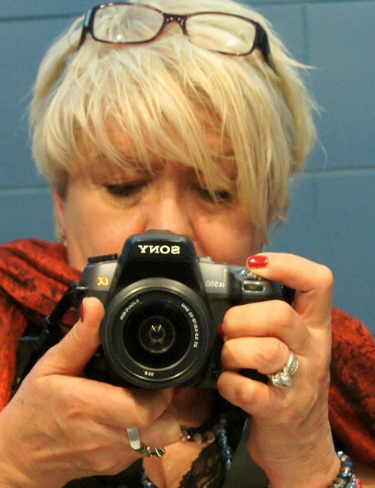 Małgorzata Bundzewicz – Lawyer, artist, painter, production designer, art therapist, the exhibition curator. She studied at the Faculty of Law of the Jagiellonian University and the Faculty of Painting at the Academy of Fine Arts in Cracow. She also finished the Postgraduate Studies in Film, Theatre and Television Scenography at the Academy of Fine Arts in Cracow. Since 1989 she has been teaching art therapy at the Association for the Development of Psychiatry and Community Care. In 1996 she founded and till this day runs the Miodowa Gallery where she exhibits works by professional artists and artists after mental crises. She received the ZPAP(Związek Polskich Artystów Plastyków) gold badge, the Pro Publico Bono distinction. In 1992, 1997 and 1998 she received a scholarship from the Ministry of Culture and National Heritage. She works in the field of painting, drawing and scenography. She has organised around 30 individual art exhibitions of paintings and drawings incl. Wooden Gallery in Chicago, Harstad Gallery in Norway, Modern Gallery in Darmstadt, Sokół Gallery in Nowy Sącz, Centre Gallery of Jewish Culture in Cracow as well as Gil Gallery. Bundzewicz took part in around 70 collective expositions incl. “Salony Malarstwa” in Arts Museum and BWA – modern art gallery in Cracow, “Salon Stulecia” in Brussels, “Salon Stulecia ZPAP” in Cracow and Warsaw, exhibitions in the series “Art Studio Miodowa i przyjaciele” in the Palace of Fine Arts and Jewish Cultural Centre in Cracow and much more. The curator of “Schizofrenia – otwórzcie drzwi” exhibitions in Cracow. A curator of eight “ART MEETING” exhibitions that took place in Tomaszowice by artists from the ZPAP. She designed around 20 stage designs for theatre, TV and film performances in theatres in Bytom, Katowice, Lublin, TV Studio in Katowice and for fiction films. Her works are held in the collections of the National Museum in Gdańsk, Contemporary Art Museum in Germany and in private collections in Poland and abroad.
Małgorzata Bundzewicz – Lawyer, artist, painter, production designer, art therapist, the exhibition curator. She studied at the Faculty of Law of the Jagiellonian University and the Faculty of Painting at the Academy of Fine Arts in Cracow. She also finished the Postgraduate Studies in Film, Theatre and Television Scenography at the Academy of Fine Arts in Cracow. Since 1989 she has been teaching art therapy at the Association for the Development of Psychiatry and Community Care. In 1996 she founded and till this day runs the Miodowa Gallery where she exhibits works by professional artists and artists after mental crises. She received the ZPAP(Związek Polskich Artystów Plastyków) gold badge, the Pro Publico Bono distinction. In 1992, 1997 and 1998 she received a scholarship from the Ministry of Culture and National Heritage. She works in the field of painting, drawing and scenography. She has organised around 30 individual art exhibitions of paintings and drawings incl. Wooden Gallery in Chicago, Harstad Gallery in Norway, Modern Gallery in Darmstadt, Sokół Gallery in Nowy Sącz, Centre Gallery of Jewish Culture in Cracow as well as Gil Gallery. Bundzewicz took part in around 70 collective expositions incl. “Salony Malarstwa” in Arts Museum and BWA – modern art gallery in Cracow, “Salon Stulecia” in Brussels, “Salon Stulecia ZPAP” in Cracow and Warsaw, exhibitions in the series “Art Studio Miodowa i przyjaciele” in the Palace of Fine Arts and Jewish Cultural Centre in Cracow and much more. The curator of “Schizofrenia – otwórzcie drzwi” exhibitions in Cracow. A curator of eight “ART MEETING” exhibitions that took place in Tomaszowice by artists from the ZPAP. She designed around 20 stage designs for theatre, TV and film performances in theatres in Bytom, Katowice, Lublin, TV Studio in Katowice and for fiction films. Her works are held in the collections of the National Museum in Gdańsk, Contemporary Art Museum in Germany and in private collections in Poland and abroad.
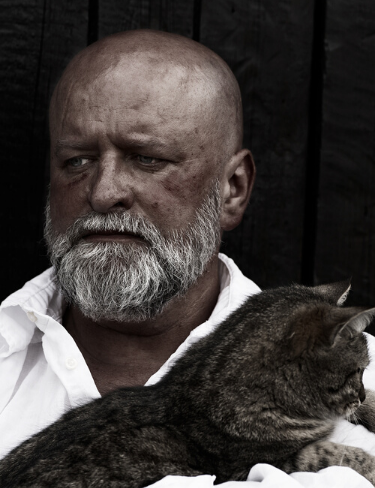
Grzegorz Grabowski
Psychologist, psychotherapist, graduate of the Jagiellonian University. He is specialized in helping people with depression, anxiety disorder, addictive disorder and also family systematic psychotherapy.
Apart from working in Sandomierz Psychotherapy and Health Psychology Centre, Grabowski manages Addiction Therapy Clinic. He also works in Palliative-Hospice Care Institution. His interests are mainly concerned with behavioural addictions such as gambling, compulsive eating, internet addiction, new media addiction. His second area of interests consists of helping terminally ill people and their families.
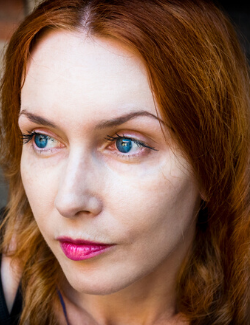 Izabela Karlińska
Izabela Karlińska
The art historian, graduate of Adam Mickiewicz University in Poznan and cultural management at Jagiellonian University in Cracow. Longterm employee of the Central Art Exhibitions Bureau in Kielce. At present she is the manager of the department of education in National Museum in Kielce. She is an educator with years of experience. For several years, she has been running photography workshops, classes in the field of universalizing contemporary art for children and youth as well as photography projects for seniors. Participant of numerous collective photo exhibitions. Author of over 300 critical texts on contemporary art published in exhibition catalogues and contemporary art magazines. Author of a series of educational books for children Gdy rodzice byli dziećmi (When the parents were children).
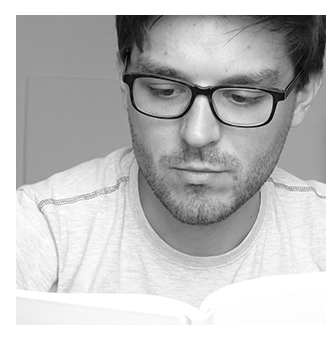 Łukasz Kędziora PhD
Łukasz Kędziora PhD
PhD in History, graduate in art history at the Faculty of Historical Sciences of the Nicolaus Copernicus University in Toruń. Graduate of Adam Mickiewicz University in the field of art history and art history with a specialization in European Cultural Tourism. Originator and co-organizer of the international Scientific Meeting “Neuro-historia Sztuki?”(Neuro-history of Art?) in Toruń. He received scholarship from: Università della Calabria, Facolta’ di Lettere e Filosofia, ZAiKS Creative Promotion Fund, Polish Ministry of Culture and National Heritage (twofold), The Brzezia Lanckoroński Foundation, the Kujawsko-Pomorskie province Marshall, the Mayor of Toruń. Leader and grant holder at the Faculty of Fine Arts and the Faculty of Historical Sciences of the Nicolaus Copernicus University. Intern at the Sainsbury Centre for Visual Arts at the University of East Anglia. Author of various scientific and critical texts in Polish and English incl. book released in 2016 entitled “Wizualność dzieła sztuki. Ocena potencjału neuroestetyki w badaniach historyczno-artystycznych”. Coeditor of collective publication entitled „Sensualność ekspozycji muzealnej”. In 2018 he lead stocktaking of the collection of the Polish Mission in Orchard Lake, USA.
www.lukaszkedziora.com
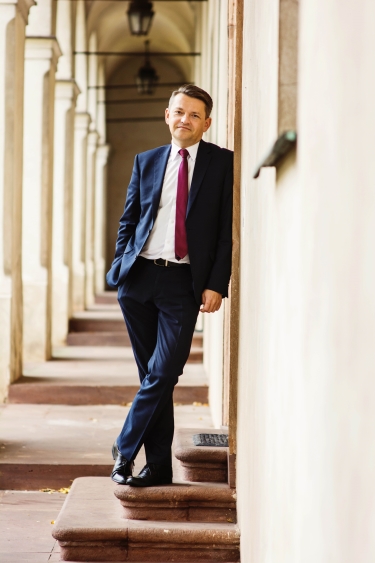
Professor PhD Robert Kotowski
Historian, museologist, certified curator, director of the National Museum in Kielce (previously Deputy Director of National Museum in Cracow). Executive director of year’s issue „National Museum in Kielce”. He was an assistant professor at the Department of Research on Libraries and Other Cultural Insitutions at the Faculty of Journalism, Information and Bibliology on University of Warsaw. Member of various museum boards, an author of numerous articles and studies in the field of history and museology incl. „ A modern museum. Heritage and the present day”, Kielce 2020 (together with Roman Batko); „Little girl in the picture. The life story of Józia Oderfeldówna”, Kielce 2014; Museum as a local center of socio-economic impact, in: Cultural Institutions as Centers of Social Life, ed. A. Mierzecka, E.B. Zybert, Warsaw 2017. Professor’s research interests focus on museology and the social history of the 20th century. Originator and organiser of the National Scientific Conference – MUSEOTHERAPY.
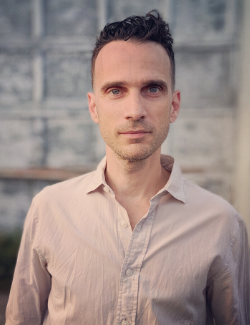
MSc Eng. Stephen Legari
Art Therapy Program Specialist at the Montreal Museum of Fine Arts (MMFA). He is a registered art therapist and a licensed therapist of couples and families. He coordinates a stationary program at the museum, which includes therapeutic groups working at the museum and dedicated to various social groups, clinical supervision on interns in regards to art therapy, collaborative work by scientific projects and also open studio for Art Hive community. Stephen lives in Montreal, Quebec region in Canada.
Professor Leszek Mądzik
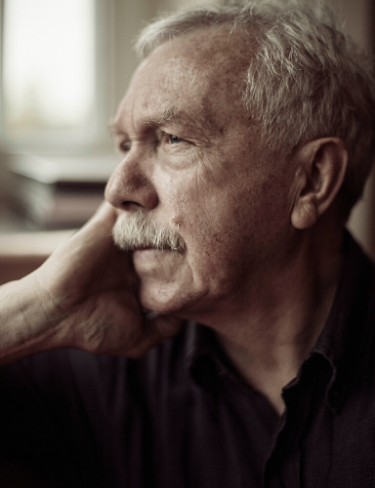 Scenographer, director, painter and photographer. He graduated from the Faculty of Artistic Weaving at the State High School of Fine Arts in Kielce. He studied art history at Catholic University of Lublin. Since 2010 he is a an associate professor. In 1969 he founded “Scena plastyczna KUL” theatre. He accomplished a number of theatre productions which he prepared apart from the activities of “Scena Plastyczna”, both in Poland and abroad. Since 1967 he created scenographies for a range of theatres inside and outside of the country. Mądzik took part in various international theatric competitions and received numerous awards and merits. Some of his productions have been filmed (Zielnik, Wrota, Wilgoć, Pętanie). Several movies were made and also a number of publications were written about “Scena Plastyczna” by Leszek Mądzik. Since 1976 he is a member of Association of Polish Artists. Since 2003 a member of the Association of Polish Art Photographers. In 1983 he the International Organisation of Scenographers(OISTAT) and in 1981 International Theatre Institute (ITI). In 1986 he established KUL Scena Plastyczna Art Gallery under which various exhibitions of exceptional contemporary artists of Polish Art Culture has been shown. Mądzik is the creator of Sacred Modern Art Museum in Kielce, an art director of RST VizuArt Festival of Set and Costume Designers. Author of numerous posters and book designs. A laureate of numerous awards incl. award from the ITI Polish Centre's Critics Section for contributions to world theatre, award of Department of Foreign Affairs of the Republic of Poland for promoting Polish culture around the world, Jan Dorman prize awarded by by the Polish Center of the ASSITEJ Association for lifetime achievement in creating an unique Polish theater, individual award of the 1st degree for promoting KUL (The John Paul II Catholic University of Lublin) in Poland and abroad awarded by the KUL rector. He has been awarded with: the Commander’s Cross of the Order of Polonia Restituta; Gold medal “Gloria Artis”; Cross of Merit “Pro Ecclesia et Pontifice”. He teaches in a number of forms and places. He taught classes for students at universities and art schools all around the world. Mądzik is a professor at the Department of Theater and Opera Scenography at the Department of Stage Design at the Academy of Fine Arts in Warsaw. The roots of his theatre are existential in nature, referring to the most deeply located meanings of existence, the place of a man in the universe. This magical – without words – spectacle is directed by light, added by music which organizes the rhythm. The viewer blended in with the darkness, lonely in the crowd, absorbs – through the filter of his own sensitivity – the spectacle that fascinates him with the play of shadows and rhythmic movements of refined artistic forms.
Scenographer, director, painter and photographer. He graduated from the Faculty of Artistic Weaving at the State High School of Fine Arts in Kielce. He studied art history at Catholic University of Lublin. Since 2010 he is a an associate professor. In 1969 he founded “Scena plastyczna KUL” theatre. He accomplished a number of theatre productions which he prepared apart from the activities of “Scena Plastyczna”, both in Poland and abroad. Since 1967 he created scenographies for a range of theatres inside and outside of the country. Mądzik took part in various international theatric competitions and received numerous awards and merits. Some of his productions have been filmed (Zielnik, Wrota, Wilgoć, Pętanie). Several movies were made and also a number of publications were written about “Scena Plastyczna” by Leszek Mądzik. Since 1976 he is a member of Association of Polish Artists. Since 2003 a member of the Association of Polish Art Photographers. In 1983 he the International Organisation of Scenographers(OISTAT) and in 1981 International Theatre Institute (ITI). In 1986 he established KUL Scena Plastyczna Art Gallery under which various exhibitions of exceptional contemporary artists of Polish Art Culture has been shown. Mądzik is the creator of Sacred Modern Art Museum in Kielce, an art director of RST VizuArt Festival of Set and Costume Designers. Author of numerous posters and book designs. A laureate of numerous awards incl. award from the ITI Polish Centre's Critics Section for contributions to world theatre, award of Department of Foreign Affairs of the Republic of Poland for promoting Polish culture around the world, Jan Dorman prize awarded by by the Polish Center of the ASSITEJ Association for lifetime achievement in creating an unique Polish theater, individual award of the 1st degree for promoting KUL (The John Paul II Catholic University of Lublin) in Poland and abroad awarded by the KUL rector. He has been awarded with: the Commander’s Cross of the Order of Polonia Restituta; Gold medal “Gloria Artis”; Cross of Merit “Pro Ecclesia et Pontifice”. He teaches in a number of forms and places. He taught classes for students at universities and art schools all around the world. Mądzik is a professor at the Department of Theater and Opera Scenography at the Department of Stage Design at the Academy of Fine Arts in Warsaw. The roots of his theatre are existential in nature, referring to the most deeply located meanings of existence, the place of a man in the universe. This magical – without words – spectacle is directed by light, added by music which organizes the rhythm. The viewer blended in with the darkness, lonely in the crowd, absorbs – through the filter of his own sensitivity – the spectacle that fascinates him with the play of shadows and rhythmic movements of refined artistic forms.
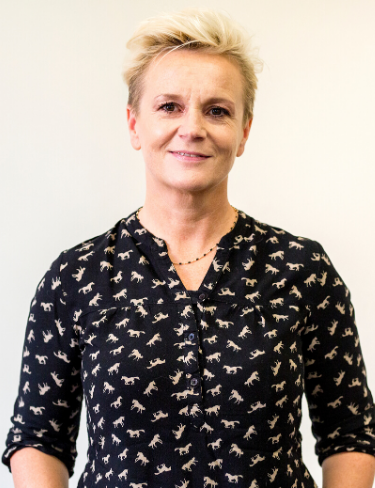 Małgorzata Minchberg
Małgorzata Minchberg
Visual artist, artistic education specialist, culture animator, a creator of various educational projects. She received scholarship from MKiDN(Ministry of Culture and National Heritage) in the field of popularization of culture. She educates to art and through art. She deals with nurturing creative attitudes of people, regardless of age, education or abilities. She graduated the Academy of Fine Arts in Warsaw at the Faculty of Sculpture. She also completed Postgraduate Pedagogical Studies (Academy of Fine Arts in Warsaw) and Postgraduate Management Studies for Artists and Culture Animators at University of Warsaw. She was admitted into PhD program at Academy of Special Education at the Faculty of Media Education on Interdisciplinary education through art. She was an art, history of art teacher at all levels of systemic education and an instructor of visual arts. She was a museum manager at the Lazienki Park at Department of Education in Warsaw. A laureate of the 1st Warsaw Cultural Education Award 2016 for project bringing contemporary art closer to various groups of youth in public space and in Warsaw cultural institutions (f.e footballers from Legia Warszawa football academy, tap dance masters, mathematically gifted middle school students). Nominated for the foregoing award in 2017 for the interdisciplinary project on education through art addressed to the staff of educational institutions. In 2018 she received WNEK(Warsaw Cultural Education Award) for longterm project incorporating education through art in the Youth Sociotherapy Centre “Radość”. In 2019 she was awarded for her longterm work in spreading education through art among educational staff. She displayed her works in Poland and abroad (ŻAK Art Gallery in Gdańsk, Art in Płock, Łaźnia in Gdańsk, Sculpture Gallery in Warsaw, Academy of Fine Arts Manchester). Attendee of en plein-airs, art symposiums and numerous art conferences, educational and scientific. Author of diploma publication in the field of pedagogy entitled “Working with a gifted child”.
Robert Więckowski 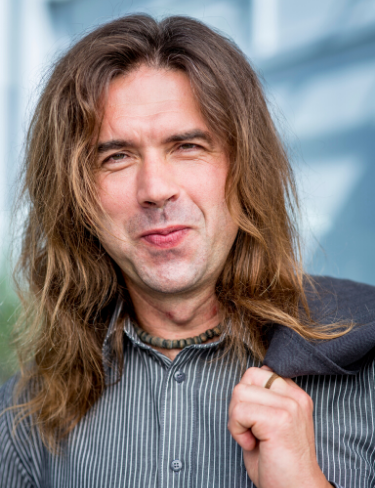
Literary scholar, cultural expert, journalist, former executive editor of “Pochodnia“ magazine published by the Polish Association of the Blind, co-founder and vice-president of Culture without barriers foundation. Co-creator of Rules for creating audio description (Zasady tworzenia audiodeskrypcji). Since 2009 he is an audio description script consultant for films, theatre arts, art works. He conducts trainings on creation of audio description and principles of servicing viewers with disabilities in cultural institutions. He is culturally related with Cardinal Stefan Wyszyński University and SPWS University of Social Sciences and Humanities. Researcher of Polish literature, its dialogue with other texts of culture, literary representations of Polish-Jewish relations and multiculturalism, the participation of literary narratives in the discourse of memory and the functioning of popular literature. One of his research interests also include the use intersemiotic translation in the process of making culture available to people with sensory disabilities in particular blind and partially sighted customers. A member of AVT Lab (Audiovisual Translation Laboratory), the Polish Association of Jewish Studies and Polish Cultural Studies Association.
 One of the most valuable goods, which each and every one of us possesses is culture. Not each and every one has the ability to enjoy with the things that surround us: literature, music, architecture, sculpture, film, painting…
One of the most valuable goods, which each and every one of us possesses is culture. Not each and every one has the ability to enjoy with the things that surround us: literature, music, architecture, sculpture, film, painting…
“… When I use the goods of the spirit, I do not experience delusion. This is the genuine part of the world worth communing with because it gives me the feeling, that despite all the horrors of life, despite mishaps, suffering, pain, shortcomings, there is still something truly good and beautiful. “ [1]
Professor Leszek Kołakowski
According to the concept of universal design, museums of 21st century change their infrastructure. They take care of communication to not exclude anyone access to the cultural property. The creation of educational projects that help to look and read text of culture are supported by outside specialists such as: methodology teachers, therapists, psychologists and artists. By doing that, museums are creating friendly connections between culture and society.
The main social mission of the museum is to make cultural property available for everyone, regardless of their background, culture, gender, religion, age or role in society. Interaction between man and museum/exhibition/artefact develop skills of perception and imagination, aesthetic awareness (concentration, amazement) allows you to feel your own and foreign points of view.
Can we go a step further? Can cultural institution become a place of work with dysfunctional people? Can museum space support sociotherapy and psychotherapy of a sick person? Can museum be a safe place for cooperation with people who require special support?
These are just a few questions that the speakers at the scientific conference will try to answer. The main point of the conference is the analysis of the community dealing with the sociotherapeutic and psychotherapeutic method of working in the Polish museums. The meeting will give courage to people working for people discriminated against in access to cultural heritage. The conference will include: democratic discussion conducted in accordance with „The Long Table” etiquette, training course and art projects presentations. The issues that will be discussed will touch upon various areas of social sciences: museology, psychology, sociology and cultural anthropology.
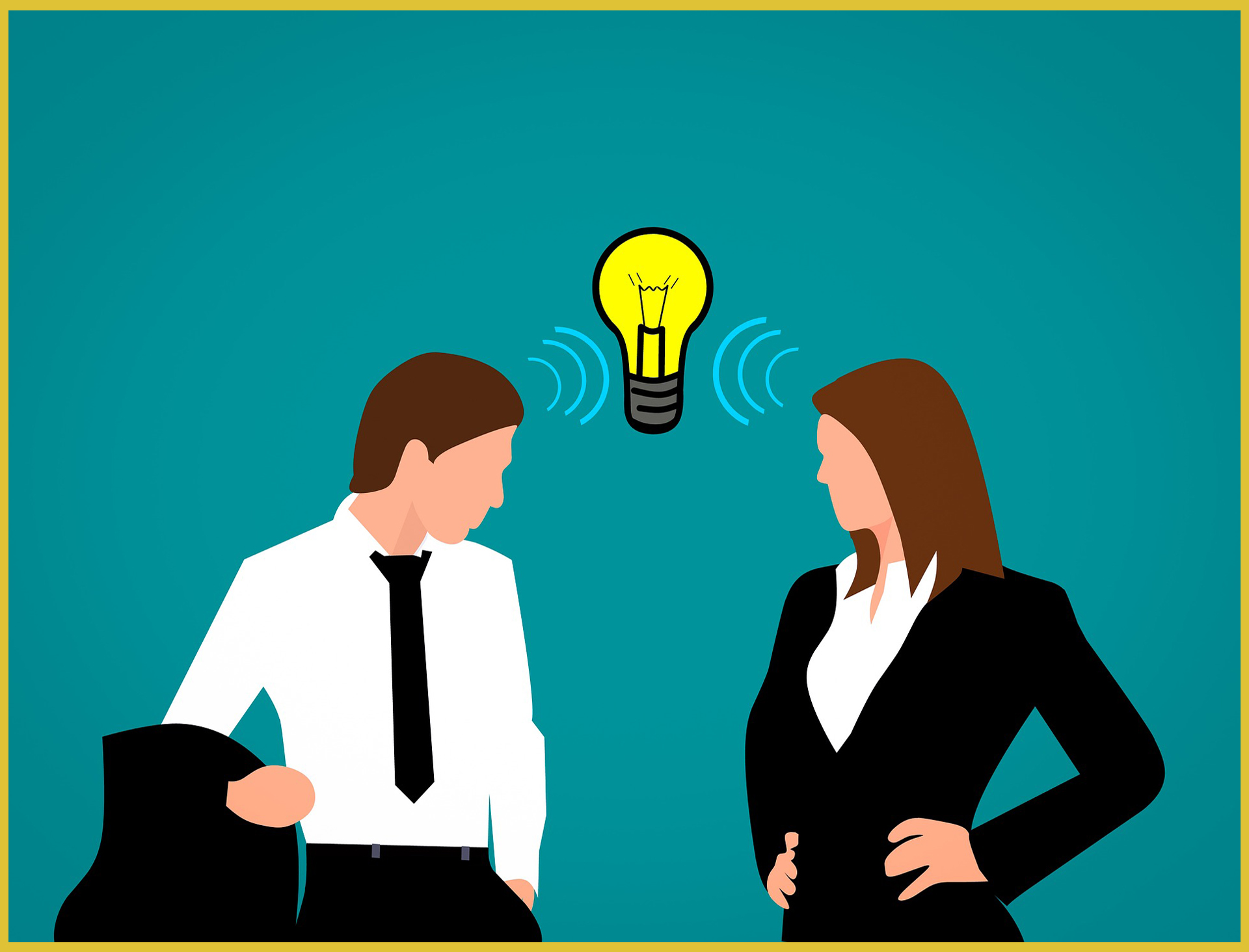 During the conference we will analyse studies concerned with sociotherapeutic and psychotherapeutic working methods, which are used by the museum. We will examine the relationships between man and the museum.
During the conference we will analyse studies concerned with sociotherapeutic and psychotherapeutic working methods, which are used by the museum. We will examine the relationships between man and the museum.
The goal of the conference is to:
- Gather knowledge and experience concerned with using museum/exhibition/artefact in working with people with difficult access to culture, especially with using sociotherapeutic and psychotherapeutic methods
- Environment integration by creating space for the exchange of ideas and opinions of specialists – scientists and practitioners
- Supporting and integration of people involved in implementing changes and adapting museums to the new sociotherapeutic and psychotherapeutic functions
- Providing equal opportunities by organizing two training courses for volunteers and people working in museums in the Świętokrzyskie province
- Publishing and promoting original projects carried out Polish museums, by making them available on the website and post-conference publication
- Documenting the event by creating a subpage with photos and audio
- Connecting the environment, the so-called networking through the social networking site Facebook and creating a networking space
- Research and presentation of new communication languages, presentation of selected art projects
- Diagnosis of requirements by conducting evaluation
[1] https://www.polityka.pl/tygodnikpolityka/spoleczenstwo/11583,2,prof-leszek-kolakowski-o-tym-co-jest-wazne-w-zyciu.read











 One of the most valuable goods, which each and every one of us possesses is culture. Not each and every one has the ability to enjoy with the things that surround us: literature, music, architecture, sculpture, film, painting…
One of the most valuable goods, which each and every one of us possesses is culture. Not each and every one has the ability to enjoy with the things that surround us: literature, music, architecture, sculpture, film, painting… During the conference we will analyse studies concerned with sociotherapeutic and psychotherapeutic working methods, which are used by the museum. We will examine the relationships between man and the museum.
During the conference we will analyse studies concerned with sociotherapeutic and psychotherapeutic working methods, which are used by the museum. We will examine the relationships between man and the museum.







